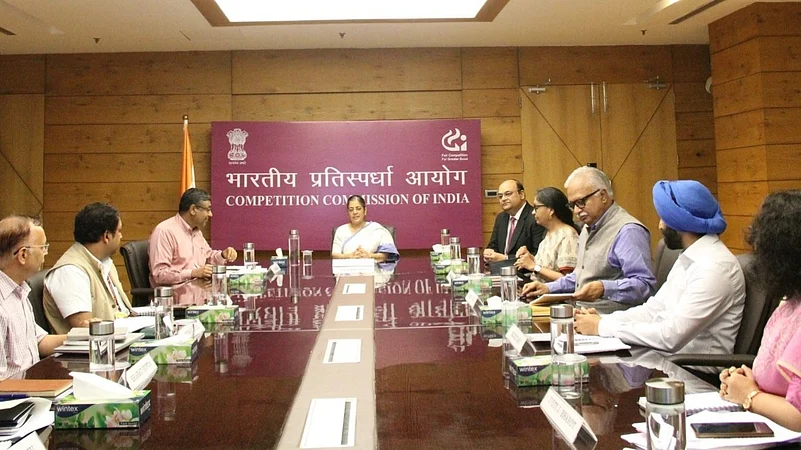
CCI urges firms to conduct regular AI self-audits documenting model decision-making
Guidance mandates tracing training-data provenance and embedding verifiable model-audit safeguards across systems
Highlights competition risks: algorithmic collusion, unilateral self-preferencing, and concentration of critical inputs
Not legally binding; CCI proposes think-tank, workshops and pilot model-audits to inform enforcement
The Competition Commission of India (CCI) has signalled a tighter spotlight on how businesses develop and deploy artificial intelligence, urging companies to carry out regular self-audits of their AI systems to prevent anti-competitive outcomes.
In a market-study released on Monday, the watchdog set out a framework requiring firms to document model decision-making, trace the origin of training data and embed safeguards that can be verified through periodic audits.
Self-Audit Call
Under the CCI’s guidance, enterprises using AI should maintain clear records of how core algorithms reach decisions and the data sources that feed them.
The framework recommends technical and process checks to ensure models do not produce recommendations that unfairly disadvantage rivals, and says AI systems must be designed to avoid sharing “commercially sensitive” information with competitors.
The regulator also flagged that pricing strategies produced by AI would be subject to scrutiny if there are signs of discriminatory or collusive behaviour.
Legal and policy experts quoted in the study say the move is unlikely to target large global technology firms at this stage. Several practitioners noted that multinational platforms typically already align to the strictest compliance regimes, especially those required in the European Union, and are therefore less likely to adopt materially different model behaviour inside India.
The market study is being framed as a precursor to a possible future regulatory architecture rather than as immediate, binding rules for global players.
CCI Plans to Enforce Expertise
The commission acknowledges the limits of traditional enforcement tools when confronting opaque, self-learning models.
Rather than issuing a single rulebook straightaway, the CCI proposes to supplement its teams with external advisors and to establish a think tank of academics, technologists and policy experts to advise on investigations. The regulator also plans workshops and advocacy sessions to help industry adopt the proposed practices.
Implications for Indian Firms
Although the report is not itself legally binding, companies that adopt the self-audit regime may gain a tactical advantage if investigated: documented audits and demonstrable governance could be used to rebut allegations or seek mitigation of penalties.
The guidance is intended to deter firms from using large models to scrape market pricing and undercut competitors in pursuit of monopolistic control, a scenario the study says could apply to both homegrown foundational-model builders and enterprises using AI for strategic pricing and market decisions.
The CCI flags a major practical obstacle: explainable AI, mechanisms that make a model’s internal reasoning transparent to humans, has not scaled commercially for large language models and other complex systems.
Mandating full explainability for widely deployed models would be technically difficult, expensive and potentially disruptive to business models. Consequently, the regulator’s immediate emphasis is on explainability for systems trained on firms’ own data and on pragmatic, auditable governance measures rather than full white-box disclosure of third-party models.
Market Risks
The study identifies three priority competition risks. First, AI-facilitated collusion where pricing and signalling algorithms produce tacit coordination. Second, unilateral algorithmic abuse such as self-preferencing and predatory bundling by dominant players and lastly, concentration over critical inputs, data, compute, talent and foundation models, that raise barriers to entry.
To address these, the CCI recommends continuous market monitoring, more merger scrutiny for AI-relevant deals, pilot model-audit protocols under confidentiality safeguards, time-limited data or compute access remedies, and stronger cross-agency cooperation.
The CCI’s immediate actions will include workshops and the formation of its advisory think tank, along with pilot model-audit schemes and guidance on personalised pricing.
How quickly and strictly these measures are turned into enforceable rules, and how industry responds, will determine whether the study becomes a blueprint for regulating the commercial use of AI in India or remains a practical compliance playbook for firms seeking to reduce legal exposure.


































